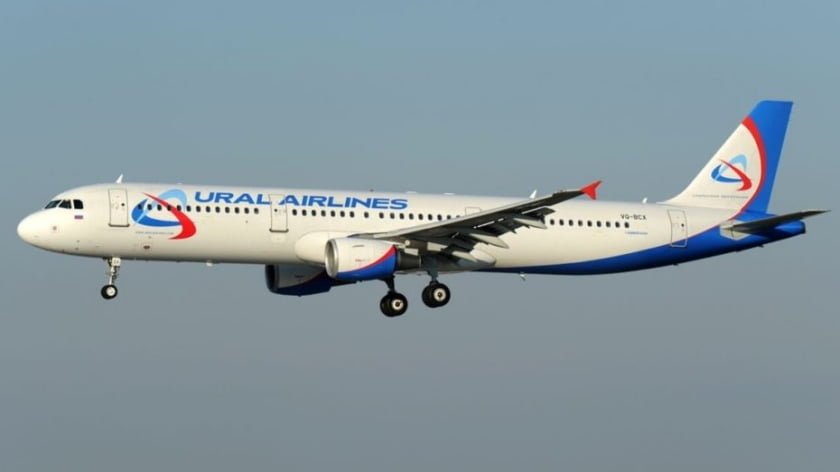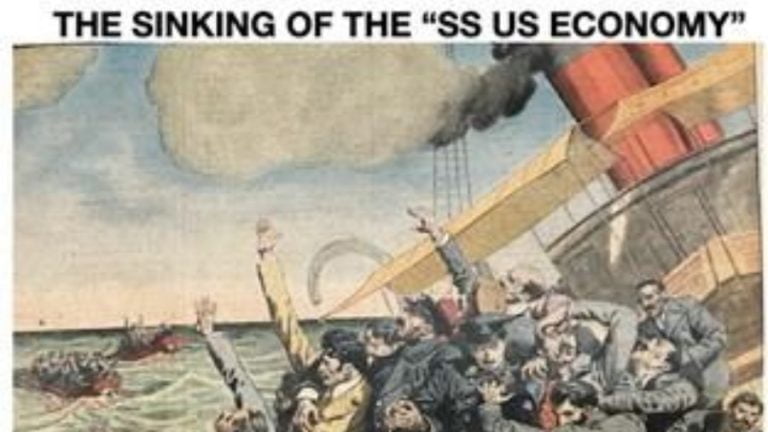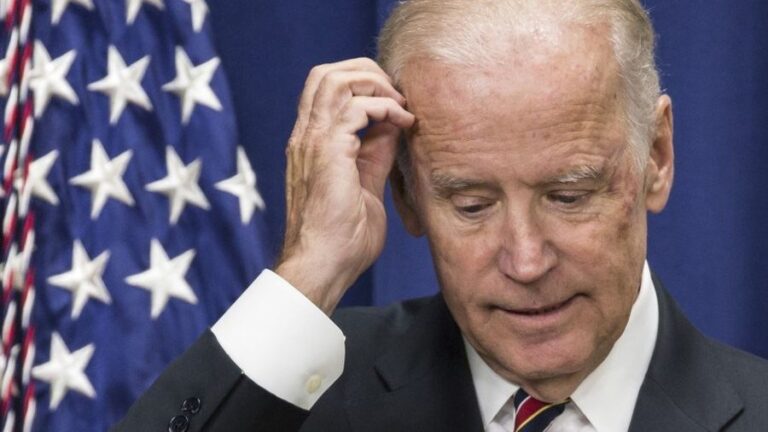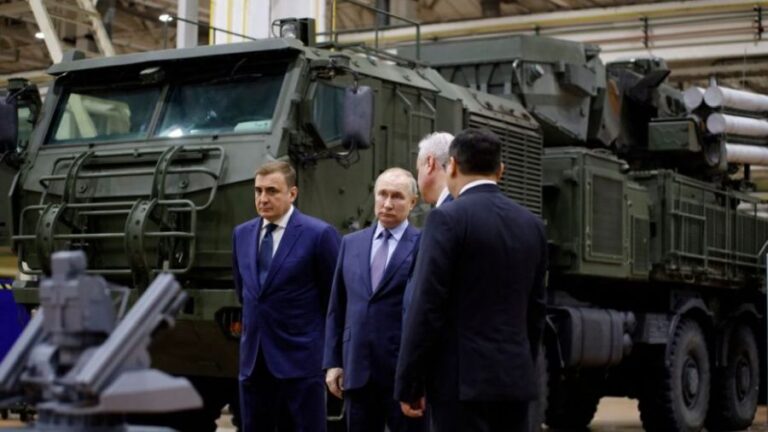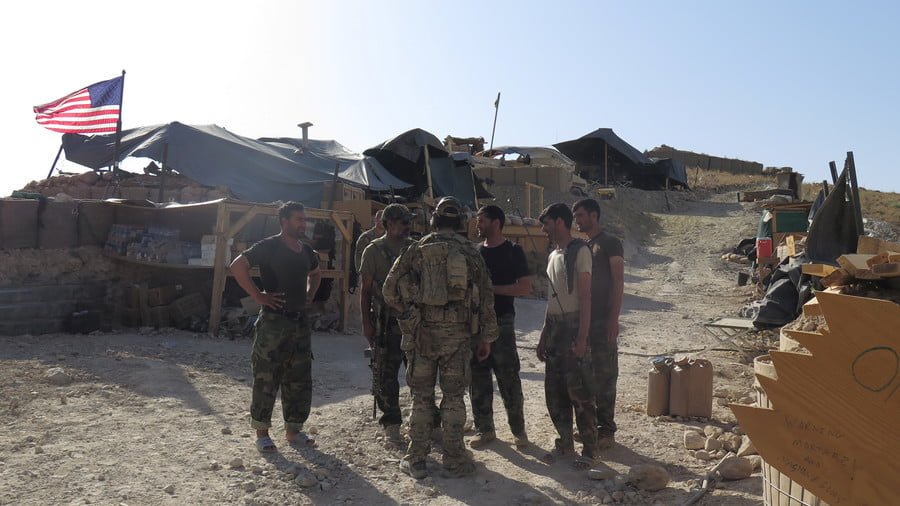Russia-Europe Relations Should Not Be up in the Air
The toxic tide of anti-Russian propaganda and misinformation continues to surge, and it is depressing for those who wish that relations between Russia and Western Europe could be improved. The state of affairs seems even more disheartening when we consider what’s being going on in the skies, because recently there have been some interesting incidents.
First, the matter of harassment of a Russian passenger aircraft, a Tu-154 airliner for which a flight plan had been filed to fly over the Baltic and was en route from Kaliningrad to Moscow on August 13 when it was intercepted in international airspace by a NATO F-18 based in Lithuania. Russia’s defence minister, Sergey Shoygu, was a passenger, and this was the second time that an aircraft on which he was travelling has been buzzed by NATO fighters. According to Stars and Stripes, “A similar incident occurred in 2017, when a Polish F-16 fighter approached Shoygu’s plane over the Baltic Sea and a Russian jet pushed it away.”
Reporting this episode of NATO irresponsibility, Fox News quoted a NATO official as saying that “a Russian aircraft, escorted by at least one Russian fighter jet, was tracked over the Baltic Sea earlier today. Jets from NATO’s Baltic Air Policing mission scrambled to identify the aircraft which flew close to Allied airspace. Once identification of the aircraft had taken place, the NATO jets returned to base. NATO has no information as to who was on board.”
This statement contains a blatant lie — the claim that the aircraft had to be identified, when in fact it had filed a flight plan and its transponder was functioning. Then there was an allegation that is sheer nonsense, because if NATO doesn’t know the movements of Russia’s defence minister, then its intelligence services should all pack up. The contention that there was “no information as to who was on board” is utterly absurd. Mr Shoygu had been attending a ceremony for the construction of a new military academy in Kaliningrad, and this had been widely reported.
Two days after NATO’s absurd fandango in international airspace, there was another incident involving a Russian airliner. This time a Ural Airlines Airbus 321 hit a flock of birds while taking off from Moscow. The engines died, and the pilot most skilfully landed his aircraft in a field.
There seems to be something outstanding about airline pilots. Sure, one hears from time to time that one of them has been disciplined or even sacked for over-indulging in alcohol — but when you think of their vast responsibility, week in, week out, flying these enormous machines all round the world, you might agree that the occasional tipple is understandable. But the stories of how they react when they’re faced with a dire and potentially fatal situation are most heartening, and I am a wholehearted admirer of these dedicated professionals. They are usually the subjects of approving reports in western media outlets, which in such instances take a rare opportunity to be in general complimentary.
The New York Times, however, while not bothering to write a report of its own, carried an Associated Press item quoting an aeronautics professor at the Massachusetts Institute of Technology, John Hansman, as saying that in the skilful Moscow crash-landing “The pilot did a good job, but that’s why he was there.” Does this man hear himself? And what were the AP and NYT thinking of, retailing such condescending garbage from an academic who, although qualified to fly aircraft, isn’t fit to lick the boots of such as Ural Airlines Captain Damir Yusupov who saved the lives of 233 people by exercising cool professional skill.
Some western media reports were grudgingly complimentary. The UK’s Guardian newspaper set the tone by headlining that “The Kremlin lauds ‘heroes’ who landed plane in cornfield after gull strike” which was positive, although use of the word “Kremlin” is always intended to inject a sinister undertone. It reported that the aircraft “came down in a field south-east of Moscow with its landing gear up after colliding with a passing flock of gulls, which disrupted the plane’s engines . . . Some compared the landing to that of US Airways Flight 1549 on the Hudson River in New York in 2009 after it struck a flock of geese.”
The aircraft “came down”? Well, certainly it did, but it didn’t just pancake into the ground. It was skilfully guided down by a pilot like the one who, according to the same newspaper, “managed to avoid disaster and save the lives of all 155 people on board his stricken plane when he ditched into the icy waters of the Hudson river moments after taking off from New York’s LaGuardia airport” when his aircraft was similarly struck. The difference in tone is intriguing, just as is the Guardian’s snide aside that “Safety concerns have plagued Russia’s airline industry since the 1991 collapse of the Soviet Union, though standards are widely recognised to have risen sharply in recent years, particularly on international routes.”
What on earth have “safety concerns” got to do with an aircraft flying into a flock of birds? These sorts of mishaps are certainly a matter of concern, but are totally irrelevant to international standards of aviation safety. It wasn’t a rerun of the Boeing 737 Max affair, after all.
Then came the widely circulated Reuters news agency observation that “The plane was due to fly to Simferopol in Crimea, the peninsula annexed by Russia from Ukraine in 2014.”
The western media can never resist an opportunity to bring up the alleged “annexation” of Crimea, in spite of it being obvious that, as the BBC reported, the vast majority of Crimean citizens indicated in a referendum that they supported joining Russia. There was no surprise about the result, as most of these people are Russian-speaking, Russian-cultured and were liable to persecution by the Kiev administration that came to power following the US-assisted coup in 2014. (It is almost forgotten that, as revealed in mysterious circumstances, the US “lead point person for the Ukrainian crisis” Victoria Nuland was recorded before the coup as saying to the US Ambassador in Kiev that “Yats [Arseniy Yatseniuk, an anti-Russia activist] is the guy… Why don’t you reach out to him and see if he wants to talk before or after?”)
But President Obama claimed that the referendum was “illegal” and declared it would never be accepted by Washington. The story to be spread was that the people of Crimea were victims of a massive Russian invasion, which is now firmly believed in the West, demonstrating that, as stated by Nazi propaganda meister Joseph Goebbels, “If you tell a lie big enough and keep repeating it, people will eventually come to believe it.”
Consistent with Goebbels’ advice, it is a basic tactic of psychological operations to inject such snippets in a seemingly relevant context — hence inclusion in an international news agency report about the bird-strike on a Russian Airbus 321.
From menacing a Russian airliner in international airspace, to manipulating a news item about a Russian aircraft accident, the western establishment is demonstrating its taste for confrontation rather than conciliation. But it is time to think more positively. Russia and Western Europe need to work together to improve their economies and benefit their citizens. Rapprochement and harmony are the way ahead. The pointless air fandangos and derisive slanting of news items should cease, otherwise we’ll all be up in the air forever.
By Brian Cloughley
Source: Strategic Culture

